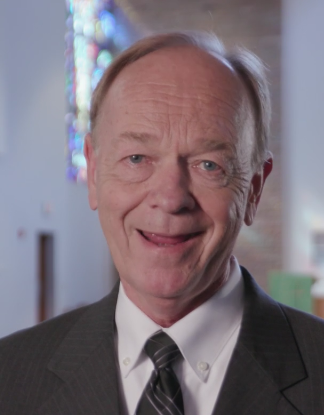 |
| Mark Zarling |
 |
| Zarling is leaving a sinking ship early, like the Concordia's captain. |
Help Wanted Ad - WELS Convention
"Active pastor, male teacher, or male staff minister for the position of president of Martin Luther College. No doctoral degree required. This is to fill a vacancy in the president’s office created by President Mark Zarling’s announced desire to retire on June 30, 2020." |
| Polish the diamond of Objective Justification in retirement, Mark. That was a great paper - Bivens plagiarized it. |
"The article of justification is the master and prince, the lord, the ruler, and the judge over all kinds of doctrines; it preserves and governs all church doctrine and raises up our conscience before God. Without this article the world is utter death and darkness... The doctrine of justification must, as I frequently urge, be diligently learned; for in it all the other articles of our faith are comprehended. And when that is safe, the others are safe too."
(E. M. Plass, ed, What Luther Says: An Anthology, 3 volumes. (St. Louis: CPH, 1959), 2:703-704.)
"The Chief Article"
( P. Melanchthon, "Apology of the Augsburg Confession," Article IV (II): "Of Justification," Concordia Triglotta. (St. Louis: CPH, 1921), p. 121.)
GJ - From the Chief Article to its repudiation, without blushing.
Zarling: "Universal justification" is a term denoting the doctrine that God has forgiven the sins of all men. Strictly speaking, the term "objective justification" expresses the thought that the sins of a man are forgiven by God whether he believes it or not. Objective justification is not necessarily universal, but if justification is universal it must of necessity be objective."
(Becker, S.W. "Objective Justification," an essay delivered to the Chicago Pastoral Conference, No. 9, 1982, page 1.)
 |
| Bivens |
The Primary Doctrine in Its Primary Setting: Objective Justification and Lutheran Worship
Frosty Bivens, 1996
“The article of justification is the master and prince, the lord, the ruler, and the judge over all kinds of
doctrines; it preserves and governs all church doctrine and raises up our consciences before God. Without this
article the world is utter darkness and death.”
(Martin Luther, What Luther Says, Vol. 2. p 703.)
Bivens - "Luther’s appraisal of the doctrine of justification is also ours. We hold it to be the primary doctrine of Scripture, that is, the central and most important teaching revealed by God for us sinners."
(Martin Luther, What Luther Says, Vol. 2. p 703.)
Bivens - "Luther’s appraisal of the doctrine of justification is also ours. We hold it to be the primary doctrine of Scripture, that is, the central and most important teaching revealed by God for us sinners."
GJ - Does he agree with the Chief Article? Like Zarling, he repudiates it.
Bivens - "As revealed in the Bible, this declaration of God is made totally by grace and on account of Jesus Christ and his substitutionary life and death on behalf of mankind. To phrase it somewhat differently, God has justified acquitted or declared righteous the whole world of sinners. He has forgiven them."
***
 |
| Andrea's catechism is the original Gausewitz. |
 |
| Gausewitz was used throughout the Synodical Conference, so guys - quit lying to everyone about OJ always being taught. |
GJ
Bivens just happened to start his dishonest essay in the same deceitful way Mark Zarling began his.
WELS originally taught Justification by Faith and used the King James Version. They ash-canned the JBFA Gausewitz and replaced it with Kuske's OJ catechism. Before that, WELS eviscerated the KJV in preparation for destroying the sect with OJ and Church Growth.




























